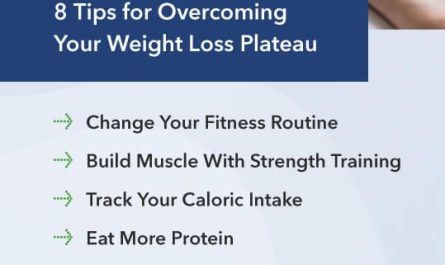When it comes to weight loss, there are countless strategies and methods touted as the “secret” to success. From the latest fad diets to extreme workout regimens, it can be overwhelming to sift through all the information and determine what really works. However, science has provided us with valuable insights into the most effective strategies for weight loss. In this article, we will explore the evidence-based approaches that have been shown to help individuals achieve their weight loss goals.
The Role of Caloric Deficit
At its core, weight loss comes down to one simple principle: consuming fewer calories than your body burns. This concept, known as a caloric deficit, is the foundation of any successful weight loss program. Research has consistently shown that individuals who are able to maintain a caloric deficit over an extended period of time are more likely to lose weight and keep it off in the long term.
Choose Whole Foods Over Processed Foods
One of the most powerful strategies for weight loss is to focus on eating whole, nutrient-dense foods rather than processed foods. Whole foods, such as fruits, vegetables, lean proteins, and whole grains, are rich in vitamins, minerals, and fiber that help keep you full and satisfied. On the other hand, processed foods, which are typically high in sugar, unhealthy fats, and empty calories, can sabotage your weight loss efforts.
Stay Hydrated
Drinking an adequate amount of water is essential for overall health and can also support weight loss. Research has shown that drinking water before meals can help reduce calorie intake and boost metabolism. Additionally, staying hydrated can prevent overeating and help your body efficiently flush out toxins.
Engage in Regular Physical Activity
In addition to making changes to your diet, incorporating regular physical activity into your routine is crucial for weight loss. Exercise not only burns calories but also helps build lean muscle mass, increase metabolism, and improve overall health. Aim for a combination of cardiovascular exercise, such as running or cycling, and strength training exercises to maximize your weight loss efforts.
Get Adequate Sleep
Sleep plays a significant role in weight loss and overall health. Research has shown that inadequate sleep can disrupt hormones that regulate appetite and metabolism, leading to weight gain. Aim for 7-9 hours of quality sleep each night to support your weight loss goals.
Monitor Your Progress
Tracking your progress throughout your weight loss journey is essential for staying motivated and on track. Whether you keep a food journal, use a fitness app, or regularly weigh yourself, monitoring your progress can help you identify patterns, track your successes, and make adjustments as needed.
Consult with a Healthcare Professional
Before embarking on any weight loss journey, it is important to consult with a healthcare professional, such as a registered dietitian or physician. They can provide personalized guidance, support, and recommendations based on your individual health needs and goals.
Conclusion
While there is no magic pill or quick fix for weight loss, science has provided us with valuable insights into the most effective strategies for achieving and maintaining a healthy weight. By focusing on creating a caloric deficit, choosing whole foods, staying hydrated, engaging in regular physical activity, getting adequate sleep, monitoring your progress, and seeking guidance from healthcare professionals, you can set yourself up for success in your weight loss journey.
Remember, every individual is unique, and what works for one person may not work for another. It may take time to find the right combination of strategies that work best for you, but with dedication, consistency, and the support of science-backed approaches, you can achieve your weight loss goals.




